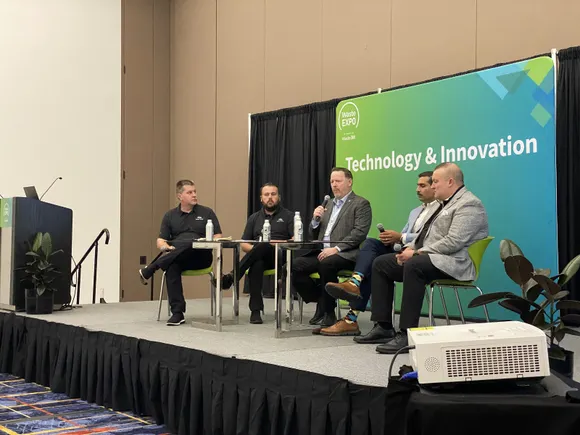The Future of Hydrogen-Powered Refuse Vehicles in the Waste Industry
Key Ideas
- Truck manufacturers remain optimistic about hydrogen-powered refuse vehicles, citing successful pilots and the adaptability of the waste industry to new technologies.
- Despite the dissolution of Hyzon, interest in hydrogen fuel cell refuse trucks persists, with manufacturers exploring partnerships to continue in the space.
- Policy challenges and evolving regulations surrounding hydrogen technology are being met with enthusiasm by manufacturers driven by sustainability-minded customer demand.
- Hydrogen fuel cell-powered vehicles offer potential benefits such as lighter weight, which could make them a viable alternative to diesel trucks on various hauling routes.
Truck manufacturers in the waste and recycling industry are still betting on hydrogen-powered refuse vehicles despite the recent closure of Hyzon, a company that conducted the first U.S. pilot for such vehicles. Manufacturers believe that waste and recycling haulers are well-suited for hydrogen technology due to their ability to adapt to new fuel types like compressed natural gas. While Hyzon dissolved in December, other manufacturers like New Way Trucks are exploring ways to continue in the hydrogen fuel cell space. The industry is also seeing interest from companies like Kenworth, Hyundai, Volvo Group, and Daimler in developing hydrogen fuel cell-powered trucks for various applications.
The sector's interest in battery-electric vehicles is also growing, with companies like Republic Services ordering electric waste and recycling vehicles. Proponents of hydrogen fuel cell vehicles highlight their potential to be lighter than battery-electric vehicles, making them a feasible replacement for diesel trucks on certain routes. However, a key challenge for wider adoption of hydrogen trucks is the need for fueling infrastructure. Panelists emphasize the importance of collaborating with third-party partners to establish hydrogen fueling stations for fleet operations.
Despite challenges, industry experts like Mitesh Naik from Peterbilt Motors express confidence in the future of hydrogen fuel cell-powered vehicles, driven by customer demand for sustainable solutions. The potential benefits extend beyond emissions savings, with hydrogen-powered trucks being seen as a recruitment tool due to their cleaner operation, creating a more appealing work environment for drivers. The industry is preparing for a mix of hydrogen fuel cell, battery-electric, and internal combustion-powered trucks in the future, aiming for a more sustainable and efficient waste hauling sector.
Topics
Policy
Power
Infrastructure
Technology
Sustainability
Electric Vehicles
Manufacturing
Business
Waste Industry
Latest News
